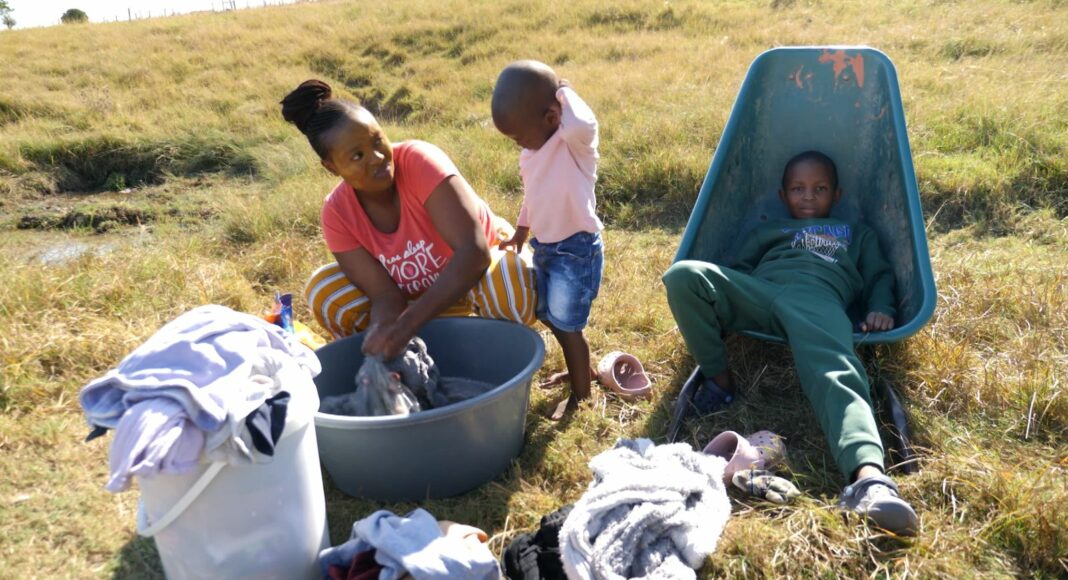The green rolling hills of Nelson Mandela’s childhood village Qunu are now a dry pale brown.
The clear streams are muddied and the families sustained by their crops and livestock are hungry. The picture of rural simplicity Mandela detailed in his autobiography A Long Walk to Freedom has tipped into deprivation.
Over a decade since his death, his cherished hometown is now another impoverished village in the Eastern Cape – the poorest province in South Africa.
Mandela’s childhood home is off the N2 motorway, the longest-numbered national route in the country.
There are no signs to alert the trucks and cars whizzing past that the humble red-bricked house off the side of the road belongs to the man who led South Africa to freedom.
Not only the place of Mandela’s earliest childhood memories, but where he is now buried.
Just across the road, 29-year-old Babalo reminisces about the days the South African flag would be hoisted to signal Mandela’s return. Behind him, the white flagpole is stark and bare.
“Everything was nice when you saw him – when he was around. You used to get inside the house and he would give us sweets and money,” Babalo tells us wistfully.
His face darkens as he says: “The freedom was still alive but now everything is not good at all.”
Babalo says he will not be voting in this election. This is the most consequential election in South Africa since Mandela and his party, the African National Congress (ANC), won the country’s first free and democratic vote in 1994, ending 45 years of oppressive Apartheid rule.
Image:
Mandela’s childhood home in Qunu where he is now buried
Image:
The hills of Qunu are dry
3:52
Why the ANC matters to South Africa
There is growing discontent with the ANC-led government and the soaring levels of unemployment, power cuts and corruption scandals that have marked the last decade.
Thirty years on, the ANC is at risk of losing its grip on power with polls indicating the party may get less than 50% of the vote.
“I used to vote for the ANC but now I struggle because I don’t see my vote – I don’t feel the fruits. I still live with poverty and unemployment. There is no change and that is why I stopped voting,” says Babalo.
Read more:Everything you need to know about South Africa’s electionSouth Africa president’s rallying call ahead of election
Image:
Zinhle washes clothes with dirty puddle water
Deeper into the fields that face Mandela’s home, an older lady wearing a faded ANC T-shirt is gathering maize from a field framed by withered crops and collecting dried cow dung to heat her pot.
“We are going to vote for the ANC because we have always voted for the party but we are aggrieved,” says 67-year-old Nobongile Geledwane.
“We don’t have water as we speak, I have just come from the river – we share water with pigs. We don’t have government houses. We are hungry. We cannot plough. Things are bad.”
Image:
Older ladies in Qunu support the ANC but feel they need more from the governing party
Image:
Older women cooking with dried cow dung
The ANC runs the Eastern Cape province where many remote villages struggle with access to running water and functioning clinics. Schools that are meant to proe schoolchildren with meals under the National Nutrition Programme that Mandela introduced in 1994 go weeks without offering children food.
In November, the South African Human Rights Commission found that child hunger in the Eastern Cape qualifies as a disaster and should be declared as such under the Disaster Management Act.
Across the state, mothers are having to give their children water from muddy puddles and contaminated water sources.
Image:
A statue of Mandela in a nearby empty museum
Image:
An ANC poster over Qunu
In the backyard of Mandela’s Qunu home, a mother of two washes her children’s clothes with water from a nearby dirty puddle.
I ask her where she drinks from and she points to the same puddle.
“We drink with the cows and pigs,” says 30-year-old Zinhle.
“I was born in the year of change – supposedly. I don’t see any change. I see that difficultness is getting more difficult.”




